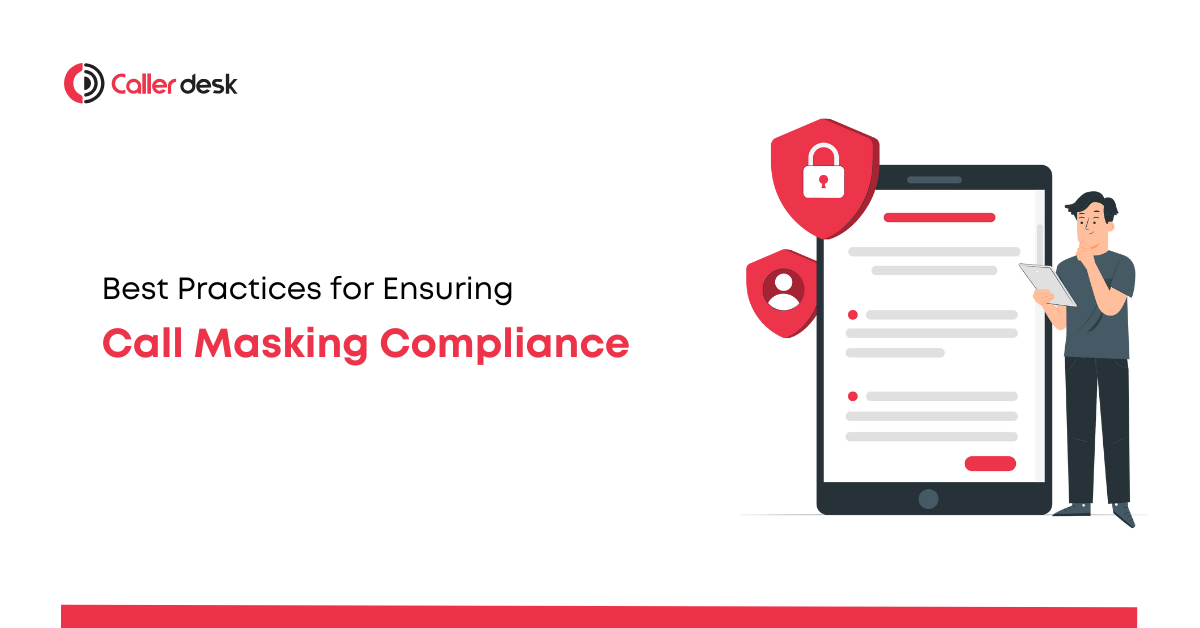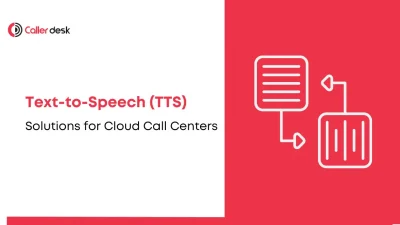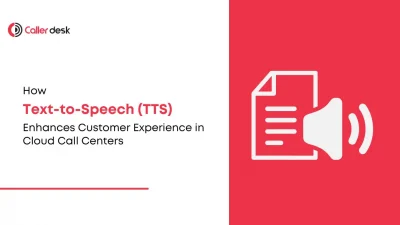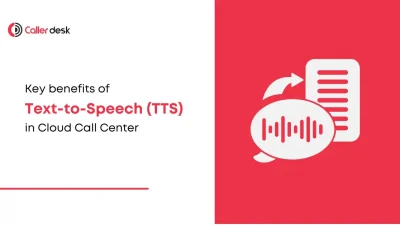Privacy breaches are a growing concern in today’s business world, with personal data increasingly at risk. Safeguarding sensitive customer information, particularly phone numbers, is essential for any organization. Call masking technology provides a robust solution, allowing businesses to enable secure communication without exposing personal contact details.
CallerDesk, a leader in call masking solutions, ensures compliance with data privacy regulations while enhancing customer trust and operational efficiency. Discover how CallerDesk can protect your business while improving trust, reducing risks, and driving operational success.
This guide explores best practices for ensuring compliance in call masking, focusing on safeguarding data, improving customer experience, and aligning with privacy laws like GDPR and CCPA.
What is Call Masking?
Call masking is a privacy-focused technology that conceals real phone numbers during communication by replacing them with temporary or virtual numbers. This ensures personal contact details remain private while enabling seamless interaction.
For example, when a customer contacts a delivery agent, the masked number appears on their caller ID instead of the real phone number. This technology is invaluable for industries that prioritize data privacy, such as e-commerce, healthcare, and ride-sharing.
How CallerDesk Enhances Call Masking
- Unmatched Security: Industry-leading encryption safeguards data during communication.
- Seamless Integration: Easily integrates with existing CRM and VoIP systems for hassle-free implementation.
- Real-Time Insights: Provides analytics that improve operational efficiency and compliance tracking.
By leveraging these features, CallerDesk transforms communication experiences into secure, efficient processes, giving businesses a competitive edge.
Why is Compliance Important for Call Masking?
Data privacy regulations like GDPR (General Data Protection Regulation) and CCPA (California Consumer Privacy Act) require strict measures to protect customer information. Non-compliance can lead to:
- Hefty Fines: GDPR violations can result in penalties of up to €20 million or 4% of global revenue.
- Reputational Damage: Loss of trust can harm customer relationships and brand equity.
- Operational Disruptions: Non-compliance can lead to legal challenges, hindering business continuity.
Proper implementation of call masking helps businesses avoid these pitfalls by securing customer data and aligning with regulatory requirements. CallerDesk’s compliance-focused solutions simplify adherence to these regulations, ensuring businesses can operate with confidence.
Real-World Example
In 2022, a global e-commerce platform faced a €15 million fine for data privacy violations due to inadequate masking practices. CallerDesk’s robust solutions prevent such costly errors, enhancing trust and securing sensitive communications.
Best Practices for Call Masking Compliance
1. Be Transparent About Call Masking
Transparency builds trust and aligns with data privacy laws. Inform customers about:
- How call masking works.
- Its purpose (e.g., enhancing privacy, protecting sensitive data).
- The benefits it offers, such as preventing fraud or misuse.
Example: Update your privacy policy and customer communications with clear explanations of call masking. Use plain language like:
“Your phone number will remain private during all interactions. A temporary number will be used to ensure your information is secure.”
Checklist for Transparency
- Include call masking details in your privacy policy.
- Add disclosures to your website and FAQs.
- Train your staff to explain masking benefits effectively.
CallerDesk helps businesses integrate transparency seamlessly into their operations, enhancing customer trust and satisfaction.
2. Offer Customers the Option to Opt-Out
While call masking enhances privacy, not all customers may prefer this feature. Providing a simple opt-out option ensures compliance with regulations and respects customer preferences.
- Seamless Process: Make opting out easy through your website, mobile app, or customer support channels.
- Multiple Channels: Offer opt-out options via email, SMS, or a call center.
Example: Add a clear opt-out link in communications, such as:
“If you prefer not to use call masking, click here to update your preferences.”
Benefits of Opt-Out Processes
- Enhances user autonomy and trust.
- Demonstrates respect for customer preferences.
- Strengthens compliance with global privacy laws.
3. Limit Data Retention
Data retention policies are critical for compliance. Regulations like GDPR mandate that businesses should only retain data as long as necessary. To comply:
- Set Clear Policies: Define data retention periods aligned with regulatory requirements.
- Automate Deletion: Use systems to automatically delete or anonymize data when no longer needed.
- Communicate Policies: Let customers know how their data is managed and deleted.
CallerDesk’s automated data management features ensure timely deletion of unnecessary records, simplifying compliance.
Practical Example for Retention
“For instance, customer data used for marketing purposes can be retained for 12 months before being anonymized or deleted to comply with regulations.”
4. Secure Your Data
Data security is critical to preventing breaches and ensuring compliance. CallerDesk employs robust security measures such as:
- Advanced Encryption: Ensures data is secure both in transit and at rest.
- Access Controls: Limits access to sensitive data to authorized personnel only.
- Regular Updates: Keeps security protocols current to mitigate emerging threats.
Enhancing Security Practices
- Conduct penetration testing to identify vulnerabilities.
- Use multi-factor authentication for all data access.
- Partner with certified cloud providers for added security layers.
CallerDesk delivers enterprise-grade security to safeguard communications, ensuring peace of mind for businesses and customers alike.
5. Regularly Conduct Audits
Periodic compliance audits are vital for identifying gaps and ensuring alignment with evolving regulations.
- Evaluate Policies: Review data storage, retention, and security measures.
- Document Findings: Maintain records of compliance activities.
- Adapt Practices: Update processes based on regulatory changes.
CallerDesk offers compliance-friendly solutions with detailed logs and reporting features to simplify audits and ensure adherence to standards.
Free Resource:
Download our compliance checklist to streamline your audit process and stay ahead of regulatory requirements.
Additional Considerations for Call Masking Compliance
1. Stay Updated on Regional Regulations
Privacy laws differ across regions, requiring businesses to ensure compliance with applicable rules. For example:
- GDPR (Europe): Emphasizes customer consent and transparency.
- CCPA (California): Empowers customers to access and delete their data.
- HIPAA (USA): Protects healthcare-related data.
2. Educate Your Team
Compliance requires an informed workforce. Train employees on:
- The importance of data privacy.
- Proper handling of masked call data.
- Addressing customer inquiries about data practices.
CallerDesk provides training resources to help teams implement best practices effectively, reducing risks and enhancing compliance.
Conclusion
Ensuring compliance in call masking is essential for protecting customer data, maintaining trust, and avoiding legal complications. CallerDesk’s solutions make it easier for businesses to implement secure communication practices while adhering to global privacy standards.
By adopting practices such as transparency, offering opt-out options, limiting data retention, and securing data, businesses can align with regulations like GDPR and CCPA. These measures foster loyalty, reinforce brand reputation, and ensure operational success.
Ready to enhance your compliance practices? Contact CallerDesk today for a free consultation and discover how our call masking solutions can protect your business and build customer trust.
Frequently asked questions
1. What is call masking, and why is it important?
Call masking is a privacy-focused technology that replaces real phone numbers with temporary or virtual numbers during communication. It protects sensitive contact details, ensuring secure and private interactions while preventing misuse or fraud. Call masking is crucial for compliance with privacy regulations such as GDPR and CCPA, safeguarding customer trust and data security.
2. How does CallerDesk’s call masking solution help businesses comply with privacy regulations?
CallerDesk’s call masking solution offers advanced encryption, automated data management, and seamless integration with existing systems. These features ensure secure communication, limit data retention, and simplify compliance with global privacy laws. Additionally, CallerDesk provides real-time analytics and audit-friendly reporting to help businesses monitor compliance effectively.
3. What industries benefit most from call masking?
Call masking is beneficial across various industries, including:
E-commerce: Protects customer and delivery agent contact details.
Healthcare: Secures patient-doctor communications while maintaining confidentiality.
Ride-sharing: Ensures passenger and driver privacy.
Financial Services: Protects sensitive financial information during transactions.
Outbound Call Centers: Enables secure interactions without exposing agent or customer numbers.
4. What steps should businesses take to ensure compliance with call masking?
To ensure compliance, businesses should:
Be transparent with customers about call masking practices.
Offer customers the option to opt-out of call masking.
Limit the retention of call data to necessary periods.
Secure stored data with advanced encryption and access controls.
Conduct regular audits to monitor compliance and address gaps.
5. How does call masking improve customer trust?
By prioritizing privacy and protecting personal information, call masking demonstrates a company’s commitment to data security. This proactive approach fosters customer trust, reduces the risk of fraud or misuse, and enhances the overall user experience.





